Lynette Linton opens her stewardship of the Bush with a drama about racial and sexual bigotry. Four British women decide to start a girl band but only one of them, Yomi, happens to be straight. The script mixes confessional monologues with bitchy interactions over kitchen suppers.
Beth, whose parents are West Indian, once dreamed of living in suburban bliss with ‘a little concrete garage for my car’. She named her imaginary children ‘Pauline, Graham and Amanda’. But when she embraced black culture she threw out her Dostoevsky novels and her Dire Straits albums and invested in jazz-funk records and the works of Toni Morrison instead. Anyone with a lifelong allergy to Dostoevsky or Dire Straits will applaud this wise decision.
The show gets spicier when the women tackle interracial marriage. Beth’s mixed-race girlfriend, Opal, rejects the terms ‘coloured’ and ‘half-caste’ but Yomi, of Nigerian heritage, challenges her on logical grounds. ‘You’re half and half… Are you denying that one of your parents is white?’ Yomi says she feels ‘sorry for children of mixed marriages’. As the tensions deepen, Yomi gradually realises that her three band mates are lesbians and that two of them are romantically entangled. Yomi calls this ‘unnatural’ and suggests that homosexuality is ‘a phase’ one can choose to circumvent.
Throughout the show, the crowd fizzed and simmered with knowing laughter. It’s a cliché that west Africans are more socially conservative than their Caribbean sisters and yet these divisions are rarely aired in public. And the audience, mainly black, weren’t the only ones thrilled by this frank and tough-minded script. To me it was a relief to see a show about prejudice and bias that barely mentioned white people at all. The fact is that immigrant communities are perfectly capable of taking sides against each other without external help, and to suggest that whites are solely responsible for black-on-black disharmony is, paradoxically, an assertion of white superiority.
This brilliant comedy is a terrific debut for Linton. The applause that greeted the curtain call was like a cloudburst. Honestly, it was so loud I had to block my ears.
The Fishermen is a bloodthirsty family melodrama by a young Nigerian writer, Chigozie Obioma, who now lives in the US. The original novel was shortlisted for the 2015 Booker Prize and this adaptation opens with two brothers meeting after an eight-year interlude. Ben has been travelling abroad while Obembe served a jail term for an unspecified crime in which they were both complicit.
The story is told in flashback. The boys belong to a large family dominated by their gruesomely self-centred and manipulative parents. The mother is a histrionic martyr who enforces discipline on her brood by playing the victim. The father, a hysterical Christian ideologue, believes that suffering is all part of God’s plan and he uses this rationale to mete out savage beatings to his kids. Having given them a ‘western education’, he expects them to qualify as ‘lawyers, doctors, professors or pilots’. And he absolutely forbids Ben, Obembe and their two older brothers from visiting the local river, which he describes as ‘deadly’ for some reason. Naturally the four young scamps breach this prohibition at the first opportunity and start fishing under the tutelage of a cranky local angler. This brings them into conflict with oddballs from the neighbourhood, including a nutty prophet and a screeching widow.
The production, directed by Jack McNamara, suffers from a serious staff shortage. Just two actors, David Alade and Valentine Olukoga, have to impersonate six family members and a huge list of cameos from the creekside area. The constant shifts of character are tiring to follow. And it’s hard to enjoy a caricature if you’re unfamiliar with the original. It’s like watching a political satire in a foreign country whose affairs you don’t follow.
The boys’ escapade at the river has deadly consequences and the younger brothers respond by plotting to attack an innocent villager. At this point the story becomes confusing. The boys’ motives are decidedly flimsy. One suggests that the assault will stop them feeling ‘unhappy’. The other readily falls in with this daft objective. And neither kid considers the probable response of their father, a violent nut job, of whom they’re mortally terrified.
To further muddy the narrative, the boys have just secured a visa for Canada where they hope to build a prosperous new life. Leaving a corpse on their doorstep shortly before they depart for north America suggests an improbable level of stupidity. Or are they plain psychotic?
The best thing about the show is the snapshot it delivers of a poverty-stricken backwater dominated by superstition, small-mindedness and snobbery. Any sensible person would want to flee this moral hell hole. The author himself has completed his escape. And good luck to him. Revisiting the purgatorium, even through a work of fiction, is an ordeal I wouldn’t wish on anyone.
Got something to add? Join the discussion and comment below.
Get 10 issues for just $10
Subscribe to The Spectator Australia today for the next 10 magazine issues, plus full online access, for just $10.
You might disagree with half of it, but you’ll enjoy reading all of it. Try your first month for free, then just $2 a week for the remainder of your first year.

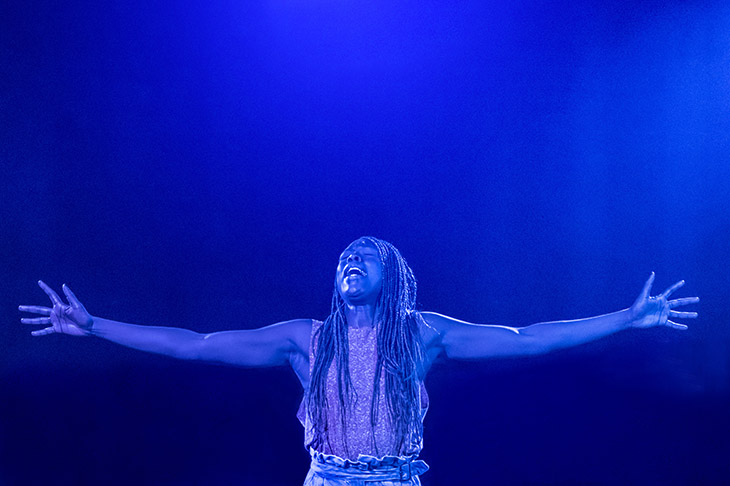
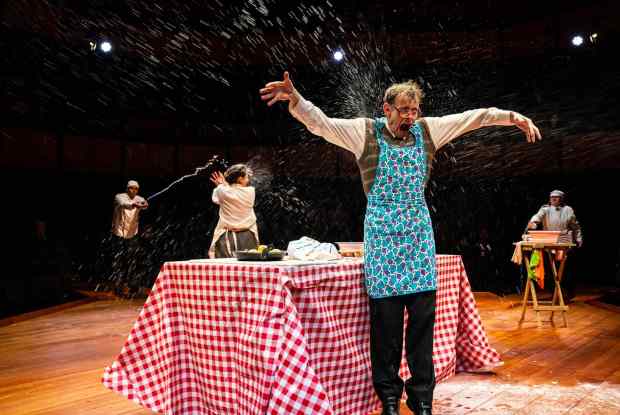
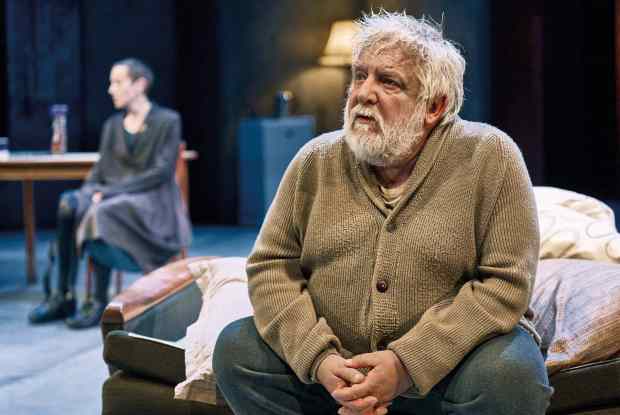
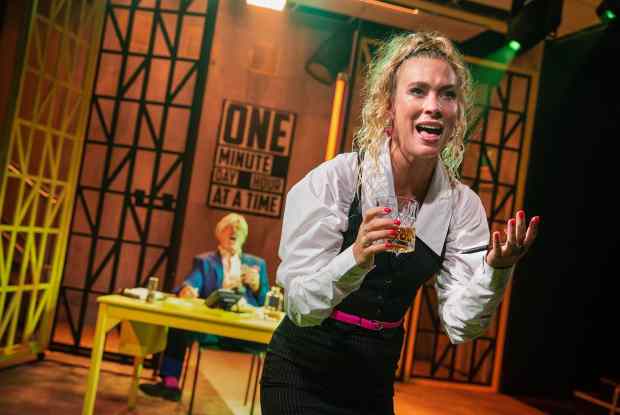
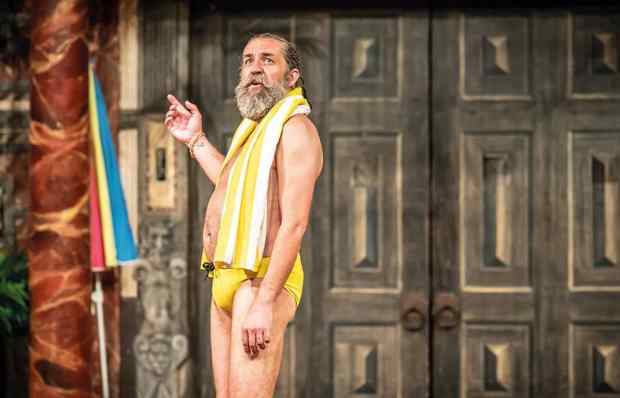
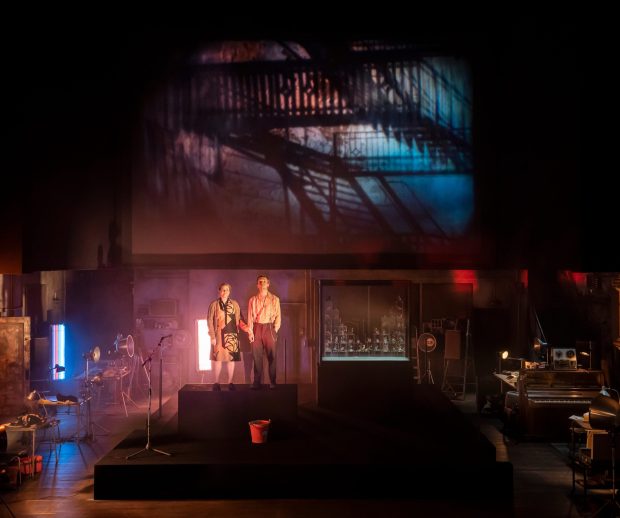







Comments
Don't miss out
Join the conversation with other Spectator Australia readers. Subscribe to leave a comment.
SUBSCRIBEAlready a subscriber? Log in